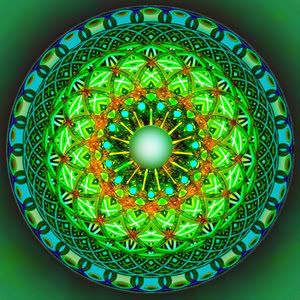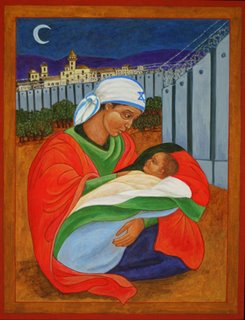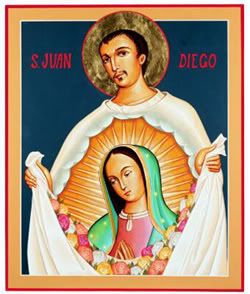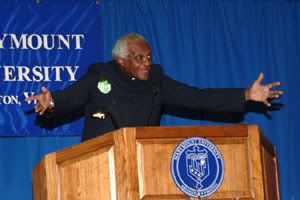Holy Mother...Loving Father... Source of All That Is... Oh--You know who You are! That daughter You gave me said a funny thing yesterday: "It seems like God has gotten shy over the years" (Meaning You don't talk to people like in the "old days") I said I wasn't sure that was true-- that sometimes it just doesn't get written down Sometimes people aren't sure it's really You (Or are afraid to believe that it is) And I told her of the time I heard from you (or one of Your "people") "Help heal the world" were the words I heard while lying in bed early that morning And then You held me close Maybe I imagined that, but it didn't matter The words felt real enough, and the need for healing was real, so I promised that I would Later I learned about tikkun olam, the Hebrew phase which translates to "repairing the world" That confirmed the notion that the call to help heal the world was true and real... It's also impossible There can never be enough glue, tape, bandages, needles and thread, hammers and nails, hope, patience, and love, to get the job done I suppose that's why the baptismal vows say, "I will, with God's help" So as we begin a new year, I ask again for Your help Help me to find the strength, energy, and love to keep working to mend that which is broken, both in myself and in the world You entrusted to our care. Alternate link for comments |
Sunday, December 31, 2006
A prayer for the new year
Posted by
Renee in Ohio
at
9:21 AM
|
![]()
Friday, December 29, 2006
On Poverty
I strongly recommend reading Christy Hardin Smith's post Bringing Poverty to the Table. Yes, as I suspected, the post was prompted by Edwards' announcement yesterday. But even if you support a different candidate, please read. As Christy noted at the end of the piece: That it has taken a Presidential candidate standing up and talking about this issue to get it back on the front pages of newspapers — at least for the day yesterday — is unconscionable. But at least people are talking about it again, and for that I applaud John Edwards for sticking to a topic that all of us need to be talking about much more frequently.I don't have a candidate to support yet, as Gore still seems unwilling to run, Feingold has said he won't, and Howard Dean is a man of his word, who promised not to run if elected chair of the DNC. But poverty is one of those uncomfortable, dauntingly big and complex issues that tends to get swept under the rug by the majority. Maybe it's a bit like global warming in that respect. Hurricanes Katrina and Rita were graphic examples of the urgency of both issues--we can't afford to ignore either. So I will join Christy in applauding Edwards getting poverty back into the headlines, even for one day. But I hope it will be for longer than that. Hopefully other candidates and officeholders will join him. And I don't say this as a supporter of any political candidate. I say it as a human being. I also say it as an Episcopalian who is proud of my new Presiding Bishop who insists on keeping the focus on this issue, in spite of the efforts of others to shift the attention back to issues of human sexuality. From an interview in June of 2006: Bishop JEFFERTS SCHORI: We need to be examining the poverty that is real around the world. We need to be examining the fact that our brothers and sisters, Anglican and not, in places like Africa and Asia don't have enough to eat. Their children don't have the opportunity to go to school. AIDS and tuberculosis and malaria are rampant in many parts of this world and people with those diseases don't have access to adequate health care. That's where our focus needs to be. And, from a description of Katharine Jefferts Schori's book, scheduled to be released in January... Grounding her reflections in a theology of the reign of God—‘God’s dream for creation’—she dares to ‘dream big’ herself, casting a vision of a world without poverty and hunger, where we all recognize our interdependence with every other child of God.Jefferts Schori's book can be preordered here. And I have heard those words echoed by Bishop Gene Robinson, and by Archbishop Desmond Tutu, and by many other people I respect and admire. I hope that more and more people will talk about it--especially people who have an audience. And when people try to distract us with something shiny, I hope that we will redirect, and bring the discussion back to issues of vital importance for our human family. (Also posted at Daily Kos, My Left Wing and Street Prophets) Update: I just discovered that Part II of Christy's discussion of poverty is now posted at FDL. Alternate link for comments |
Posted by
Renee in Ohio
at
1:39 PM
|
![]()
Tuesday, December 26, 2006
Oplatki
Here's a required part of Christmas when celebrated with my Mom's family: One of the most beautiful and most revered Polish customs is the breaking of the oplatek. The use of the Christmas wafer (oplatek) is not only by native Poles in Poland but also by people of Polish ancestry all over the world. Family members extend oplatki (plural--oplatek is the singular) to one another, and break pieces off, offering good wishes and blessings for the coming year. Every year we know that Oplatki Time is coming. It's awkward--like knowing you will be required to give a mini-speech to people you haven't seen since last year. Every year someone jokes about not doing it, or tries to barter it down to just holding up the wafers and making one big communal Christmas wish/blessing. But we always do the thing. It's tradition, dang it. Thank you to everyone who contributed to Heifer in my Mom's honor. She was really surprised, and quite touched. Will share more later, but now it's family time. |
Posted by
Renee in Ohio
at
11:04 AM
|
![]()
Friday, December 22, 2006
Countering Anti-Muslim bigotry
Note: I started this post at the beginning of the month and then got very busy with Christmas preparations and various events for the kids. But today, after more recent developments, such as Virginia Represenative Virgil Goode's letter about the importance of tightening immigration restrictions to avoid an "influx of Muslims", I decided I'd better post it. A video of news segment about this story can be seen at Crooks and Liars. Here is a link to some columns by Dr. Asma Mobin Uddin, a Columbus area pediatrician and member of the Muslim faith. She makes public appearances (one at my church a couple years ago) to help people learn more about the misunderstood and sometimes mistrusted faith to which she belongs, has written columns for the Faith and Values section of the Columbus Dispatch, and has written a children's book, My Name is Bilal... Synopsis:Alternate link for comments |
Posted by
Renee in Ohio
at
3:14 PM
|
![]()
Thursday, December 21, 2006
What part of "all" don't these people understand?
Some disheartening stories I've seen recently... And, God says, God says, "Yes, I do have a dream. Like, Martin Luther King, Jr." God says, "I, too, have a dream. I dream that my children one day will discover that they are family."By the way, one way to help those family members who are living in hunger and poverty, is through a donation to Heifer International. I've set up a page, with a modest goal of $250, here. Alternate link for comments |
Posted by
Renee in Ohio
at
10:02 AM
|
![]()
Tuesday, December 19, 2006
Art, worship, and action
A U2charist is an Episcopal Eucharist service that features the music of the rock band U2 and a message about God's call to rally around the Millennium Development Goals. The U2charist is a great opportunity to reach out to the people in your congregation and larger community, especially young people. This service the music and message of U2 about global reconciliation, justice for the poor and oppressed, and the importance of caring for your neighbor. Led by the global MDG ambassador, Bono, U2 is calling people worldwide to a deeper faith and engagement with God's mission. The U2charist seeks to be an extension of this ministry. Who knows...maybe Jon can make up for this by having Bono, or, better yet, Bishop Katharine Jefferts Schori, on the program to talk about the Millennium Development Goals. (Why not--he had Bishop Desmond Tutu on the program!) Alternate link for comments |
Posted by
Renee in Ohio
at
10:29 AM
|
![]()
Tuesday, December 12, 2006
The "true on the inside" story of Our Lady of Guadalupe
...an elderly Indian man named Chuauhtlatoczin ["Juan Diego" in Spanish] had a vision of Mary, the mother of Jesus, at Tepeyac, a squalid Indian village outside of Mexico City. Mary directed Juan Diego to tell the bishop to build the church in Tepeyac. The Spanish Bishop, however, dismissed the Indian’s tale as mere superstition — he was, after all, an Indian — but then, to humor Juan Diego, he insisted that he bring some sort of proof, if he wanted to be taken seriously. So, three days later, the Virgin Mary appeared again and told Juan Diego to pick the exquisitely beautiful roses that had miraculously bloomed amidst December snows, and take them as a sign to the Bishop. When the Indian opened his poncho to present the roses to the Bishop, the flowers poured out from his poncho to reveal an image of the Virgin Mary painted on the inside of the poncho. That image hangs today in the Basilica of Guadalupe in Mexico City and is venerated by thousands of pilgrims from all over the world.While I was raised Catholic, I don't remember learning this story, or if I did, it didn't really register. Maybe that is because of the "otherness" of the characters involved. Mary of Nazarath, I now know, certainly was *not* blond and blue-eyed, but as a blond, blue-eyed child, that depiction seemed normal and familiar. I only came to really read and ponder the story as an adult, having been officially received into the Episcopal church, and felt very much at home in my new church. But it was lacked any iconography of Mary, so I turned to other sources to feed that longing. The writing of Kathleen Norris, in particular, helped me come to terms with the significance of Mary from a more modern, feminist perspective than I had encountered in the past, and also introduced me to the story of the Virgin of Guadalupe. Here is an excerpt of her writing on the subject: In a recent essay the writer Rugen Martinez lovingly articulates the paradoxes that enliven his sense of the officially sanctioned Mary of church doctrine, and, to borrow his phrase, the "Undocumented Virgin" of personal experience and legend, folktale, and myth. I should probably take this opportunity to make an aside and state that by "myth" I mean a story that you know must be true the first time you hear it. Or, in the words of a five-year-old child, as related by Gertrude Mueller Nelson in her recent Jungian interpretation of fairy tales and Marian theology, Here All Dwell Free, a myth is a story that isn't true on the outside, only on the inside.Juan Diego was declared a saint by Pope John Paul II back in 2002, and I recall hearing news stories that there were doubts about the authenticity of the potential saint's story. I remember easily accepting the notion that the story was "used" as something like a marketing strategy to help convert the native people to Catholicism. And that may indeed be part of the truth. But it's not all of it. Kathleen Norris writes: Mary's love and pity for her children seems to be what people treasure most about her, and what helps her to serve as a bridge between cultures. One great example of this took place in 1531, when the Virgin Mary appeared to an Indian peasant named Juan Diego on the mountain of Tepayac, in Mexico, leaving behind a cloak, a tilma, imprinted with her image. The image has been immortalized as Our Lady of Guadalupe, and Mexican-American theologian Virgilio Elizondo argues, in The Future is Mestizo, that the significance of this image today is that Mary appeared as a "mestiza," or person of mixed race, a symbol of the union of the indigenous Aztec and Spanish invader. What was, and still is, the scandal of miscegenation was given a holy face and name. As a Protestant I'll say it all sounds suspiciously biblical to me, recalling the scandal of the Incarnation itself, the mixing together of human and divine in a young, unmarried woman.I'm getting used to the idea that nothing is as black and white as it first appears--indeed, to welcome and expect that. Here is another meditation on the meaning of the Virgin of Guadalupe, from Social Edge. Will Braun writes, in part: As immigrant peoples in the Americas --or Turtle Island, as many indigenous people know it-- we live on ill-gotten land. Our homes and churches stand on land once home to others. Our spiritual histories must address this reality with honesty, grace, and compassion. Alternate link for comments |
Posted by
Renee in Ohio
at
12:44 PM
|
![]()
Monday, December 11, 2006
Robin Meyers' 2004 Peace March Speech
When I posted the link to Robin Meyers' book last night, it hadn't yet occurred to me that I had read his words before. But further searching reminded me that he had given a powerful speech at a peace rally in 2004, which was posted and/or referenced on a number of progressive blogs. It can be found as a PDF here. Christians take chances for peace. So do real Jews, and real Muslims, and real Hindus, and real Buddhists--so do all the faith traditions of the world at their heart believe one thing: life is precious.Robin Meyers is Senior Minister at Mayflower Congregational Church in Oklahoma City. |
Posted by
Renee in Ohio
at
11:21 AM
|
![]()
Sunday, December 10, 2006
Just heard about this book
...will have to check it out. "In the pulpit, Robin Meyers is the new generation's Harry Emerson Fosdick, George Buttrick, and Martin Luther King. In these pages, you will find a stirring message for our times, from a man who believes that God's love is universal, that the great Jewish prophets are as relevant now as in ancient times, and that the Jesus who drove the money changers from the Temple may yet inspire us to embrace justice and compassion as the soul of democracy. This is not a book for narrow sectarian minds; read it, and you will want to change the world." |
Posted by
Renee in Ohio
at
9:34 PM
|
![]()
Today is Human Rights Day
Today is UN Human Rights Day so it seems like an appropriate time to post the UN Millennium Development Goals: And, God says, God says, "Yes, I do have a dream. Like, Martin Luther King, Jr." God says, "I, too, have a dream. I dream that my children one day will discover that they are family." |
Posted by
Renee in Ohio
at
9:51 AM
|
![]()
Friday, December 08, 2006
Happy Bodhi Day
During our family's nightly Advent candle lighting, I'm making a point of talking about the other "holidays of light" that are celebrated in different faith traditions. I know very little about Bodhi Day, so if anyone has anything to add, please do... We should not think that this awakening is something that we must revere from afar. It is not that this Buddha is somehow set apart from us that makes him worth remembering. Instead, we should realize that the Buddha is important precisely because he was one of us, a human being who could and did wake up to a new vision of life and a new way of living in the world. What he did, we can do as well. The Flower Garland Sutra teaches that upon his awakening the Buddha thought, “I now see all sentient beings everywhere fully possess the wisdom and virtues of the enlightened ones, but because of false conceptions and attachments they do not realize it.” Some other links--not specifically about Bodhi Day, but I thought they were cool... Walking with Peace and Presence There's a video of Thich Nhat Hahn's "Peace is every step" walk in Los Angeles here, as well as a blog post about the experience. by Thich Nhat Hanh Alternate link for comments |
Posted by
Renee in Ohio
at
9:19 PM
|
![]()
Bodhi Day
Today is Bodhi Day, and I've been planning to do something with that when we light our Advent candle as a family tonight. In the process, I found this... |
Posted by
Renee in Ohio
at
2:32 PM
|
![]()
Thursday, December 07, 2006
Rejoice (and celebrate diversity)
I find the so-called "culture wars" with regard to saying "Merry Christmas" versus "Happy Holidays" disheartening. Where's the joy in that? Perhaps you've heard that Walmart has "learned its lesson" and has officially decided to rename their Holiday Shop, "The Christmas Shop." (And some other things--click the link.) Yay--my holiday *totally* kicked all those other holidays' a$$es. We sure showed them! We're #1! We're #1!" You knew that was sarcasm, right? This "victory" for Christmas leaves me cold. It's counter to everything I believe the season is meant to stand for. This Advent, as our family takes time out each evening to light a candle and ponder something about this season, I'm trying to include things from the different "holidays of light". It takes some effort, because when I was growing up, I never really learned much about traditions other than my own. So, I'm trying to learn more. Here's something I wasn't aware of until recently--December 8 is celebrated by some Buddhists as Bodhi Day, and honors the enlightment of Siddhartha Gautama. So, what else are people celebrating at this time of year, and how are you celebrating? Alternate link for comments |
Posted by
Renee in Ohio
at
3:56 PM
|
![]()
Wednesday, December 06, 2006
Happy St. Nicholas Day
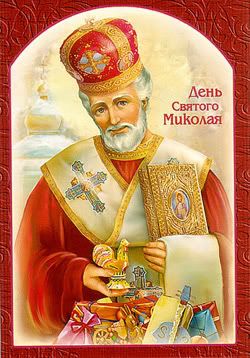 As Mahanoy at Street Prophets reminded us last night, today is the St. Nicholas Day. There are some stories about St. Nicholas on the Saint Nicholas Center web site. Tonight, at Advent candle time, I think I'll encourage the kids to think about how the stories can be "true on the inside"--what message these stories might have for us today. Through the centuries many stories and legends have been told of St. Nicholas' life and deeds. These accounts help us understand his extraordinary character and why he is so beloved and revered as protector and helper of those in need.More here. The image of Saint Nicholas seen above is from the gallery on the Saint Nicholas Center web site. Alternate link for comments |
Posted by
Renee in Ohio
at
3:15 PM
|
![]()
Tuesday, December 05, 2006
Advent, continued
After yesterday's post about Advent, I was inspired to create this card. I'm still looking for suggestions of poems, songs, or other short pieces of writing that would be suitable for reflection along with our Advent candle lighting. I'd like to find a few things that are more generally invocative of the *themes* of Advent, but without the overtly religious language, in order to make it more accessible to my son, who is not a believer. (But I convinced him to come "along for the ride", by plying him with the little candies in the Advent calendar.) Alternate link for comments |
Posted by
Renee in Ohio
at
11:09 AM
|
![]()
Monday, December 04, 2006
Taking time for pondering
So, Christmas is coming again, huh? I was just remarking to my EfM group last night that I don't think I've experienced a single Christmas where I wasn't either a teacher or a student. Or if I did, I was probably a very new parent at the time. So at the time when I hear others talking about how they've done *all* their shopping already, or are at very least finishing it up, I'm in the midst of end-of-the-quarter/semester frenzy. "Soon..." I will quietly reassure myself. "Soon, I will be finished with what I'm working on, and will be able to turn my attention to the holidays." Light one candle for hope, One bright candle for hope.Whether or not you believe that the biblical story of Jesus "really happened", there is something universal about the "hope in a dark time" theme at this time of year. That's one of the things I said last night as we lit the first candle on our makeshift Advent wreath. And I read part of the nativity story in Luke, emphasizing this verse: But Mary treasured all these things, pondering them in her heart.And I said, whatever we believe, or don't believe, I think it's important at this busy, sometimes sensory-overloading time of year, to take time to ponder. 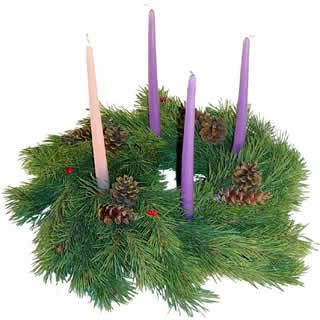 By the way, the quarter is *not* yet over--I still have to put finishing touches on an exam and grade some papers today. And I guess I need to run to the grocery store, because Demetrius is on a tight deadline and probably won't be able to get out. So I don't know yet what poem or song or piece of writing we will be pondering when we light our candle tonight, and am open to suggestions. ;) Update: Via Father Jake Stops the World, a Meditation for Advent I. The song is "Quiet", by Paul Simon. I've also really been appreciating (since discovering them only yesterday) the reflections of Sr. Claire Joy on her blog Flavor of the Month. Alternate link for comments |
Posted by
Renee in Ohio
at
11:09 AM
|
![]()


